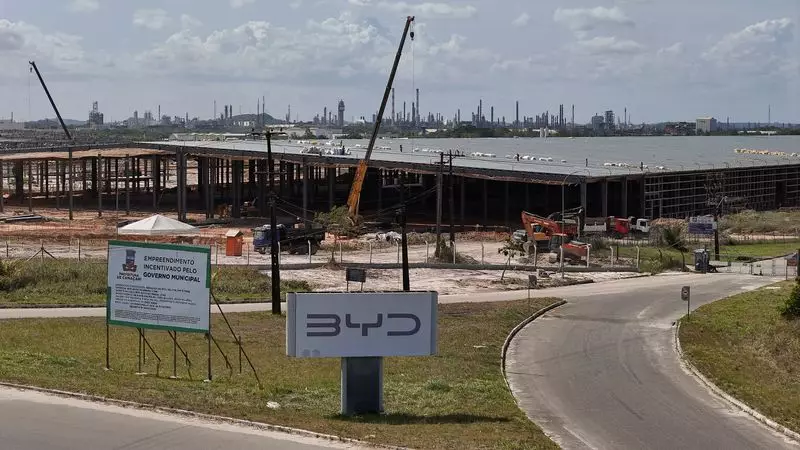In an alarming development, the Chinese electric vehicle manufacturer BYD (SZ:002594) has come under scrutiny for its labor practices in Brazil. The company recruited hundreds of Chinese workers through questionable visa processes to expedite the construction of a factory in Bahia. Brazilian labor inspectors recently revealed that a significant number of these employees were found working under conditions resembling modern slavery. The issue has ignited discussions surrounding the ethical implications of foreign investment and labor rights in Brazil, raising questions about the responsibilities that multinational corporations have toward their employees, especially in foreign territories.
Liane Durao, a prominent labor inspector, reported that a total of 163 workers were discovered in December, living and working in unacceptable conditions. These workers had been contracted through Jinjiang, a Chinese construction firm hired by BYD, and had faced serious violations of their rights. On top of this, it was revealed that the passports of 107 workers were being held by their employer, a clear indication of coercive labor practices. The investigation has prompted governmental authorities to take action, including the possible imposition of fines on BYD for each worker found in these deplorable situations. Furthermore, the Brazilian government has suspended the temporary issuance of visas for BYD, impacting the company’s labor strategy significantly.
In the wake of the investigation, BYD has claimed its intention to comply with Brazilian labor laws for the remaining workers who are still in the country. They have reportedly severed ties with Jinjiang, which continues to dispute the allegations made by labor authorities. While BYD maintains that their recruitment processes were legitimate and voluntary, the ongoing scrutiny suggests a disconnect between the company’s assertions and the stark realities uncovered by investigators. The labor officials have expressed their commitment to maintaining oversight at the construction site to ensure adherence to labor regulations going forward.
This controversy poses significant threats to BYD’s ambitions within Brazil, a critical market for its plans for global expansion. The factory is intended to produce 150,000 vehicles annually and represents an investment of approximately $620 million, underscoring the company’s commitment to tapping into Brazil’s market. However, the ongoing investigation into labor conditions could delay construction, ultimately impacting production timelines. Additionally, the ripple effects of the scandal could damage BYD’s reputation not only in Brazil but globally, particularly as it positions itself as a leader in the electric vehicle (EV) market.
Brazil has increasingly sought to attract Chinese investment; however, the method of importing labor from China raises significant concerns about local job creation. With President Luiz Inacio Lula da Silva prioritizing employment for Brazilian citizens, the reliance on Chinese labor undermines these efforts. The investigation into BYD highlights broader concerns regarding how foreign corporations navigate labor markets in their host countries and the potential implications for local economies and employment dynamics.
As the situation develops, it is clear that labor rights must be a paramount concern for any multinational corporation looking to expand abroad. The events surrounding BYD’s factory in Brazil call for greater scrutiny and accountability in the way foreign investments engage with labor laws and regulations. The revelations of exploitation and human rights violations underscore a critical need for companies to prioritize ethical practices over profit margins. This case serves as a crucial reminder of the responsibilities that come with globalization and the necessity for both corporations and governments to ensure that labor rights are respected and upheld. The long-term success of BYD in Brazil will depend on its ability to navigate these complexities with integrity and respect for the local workforce.

